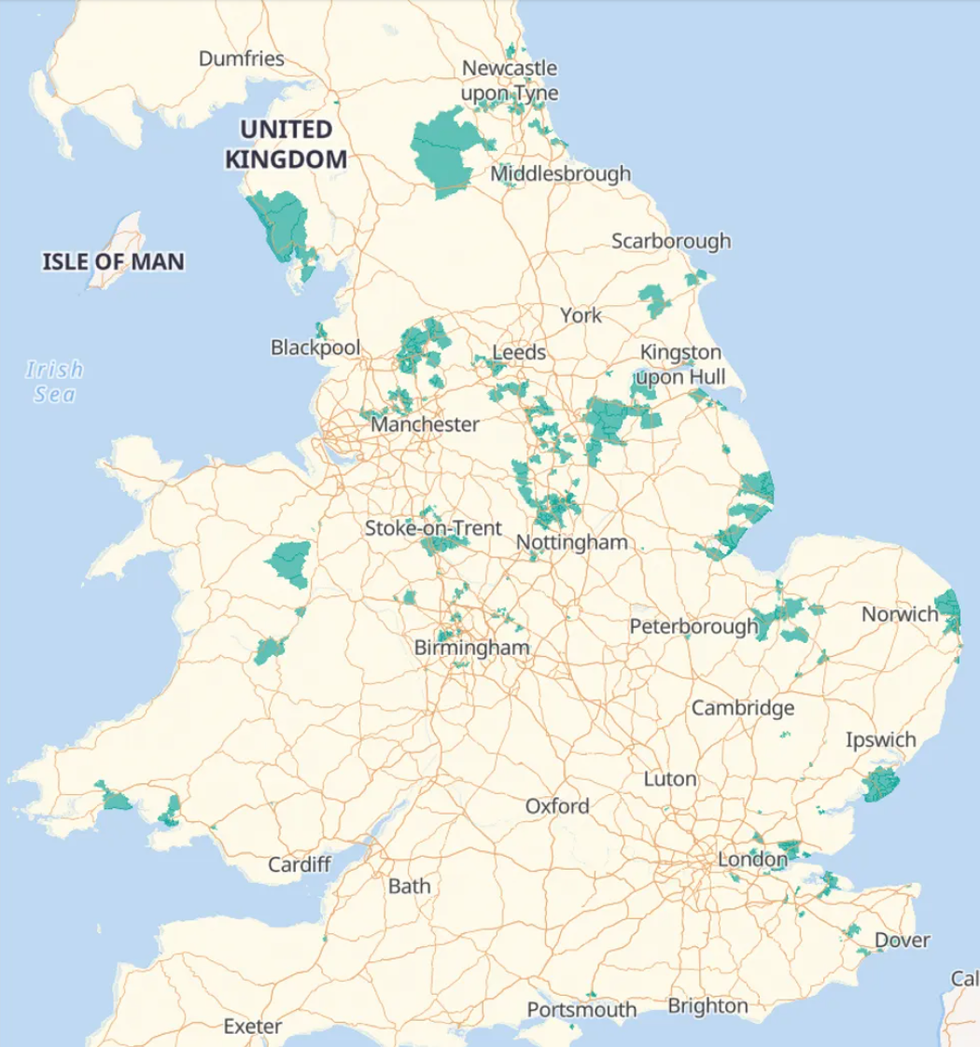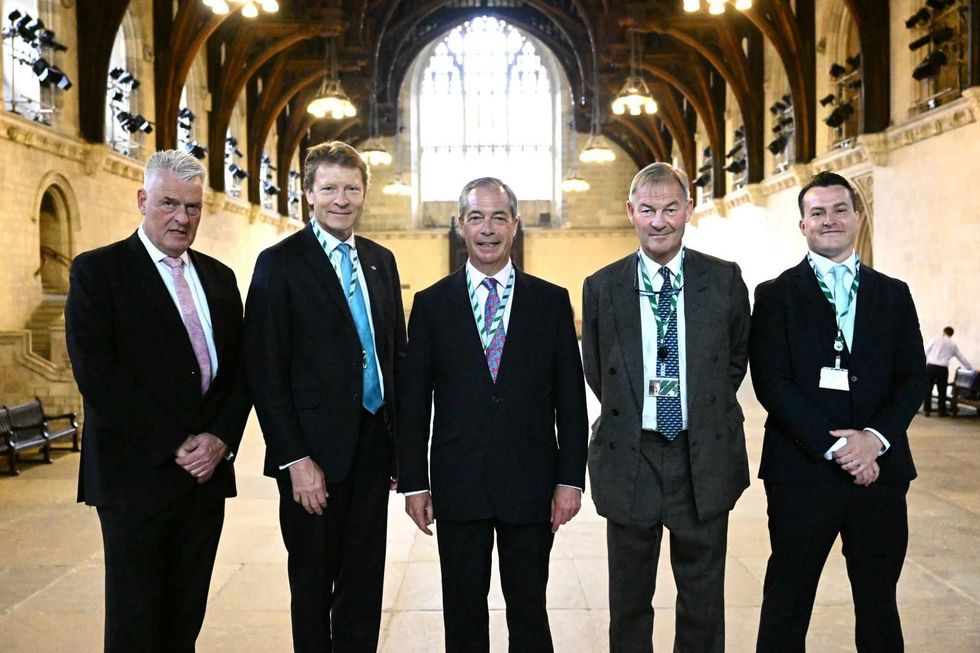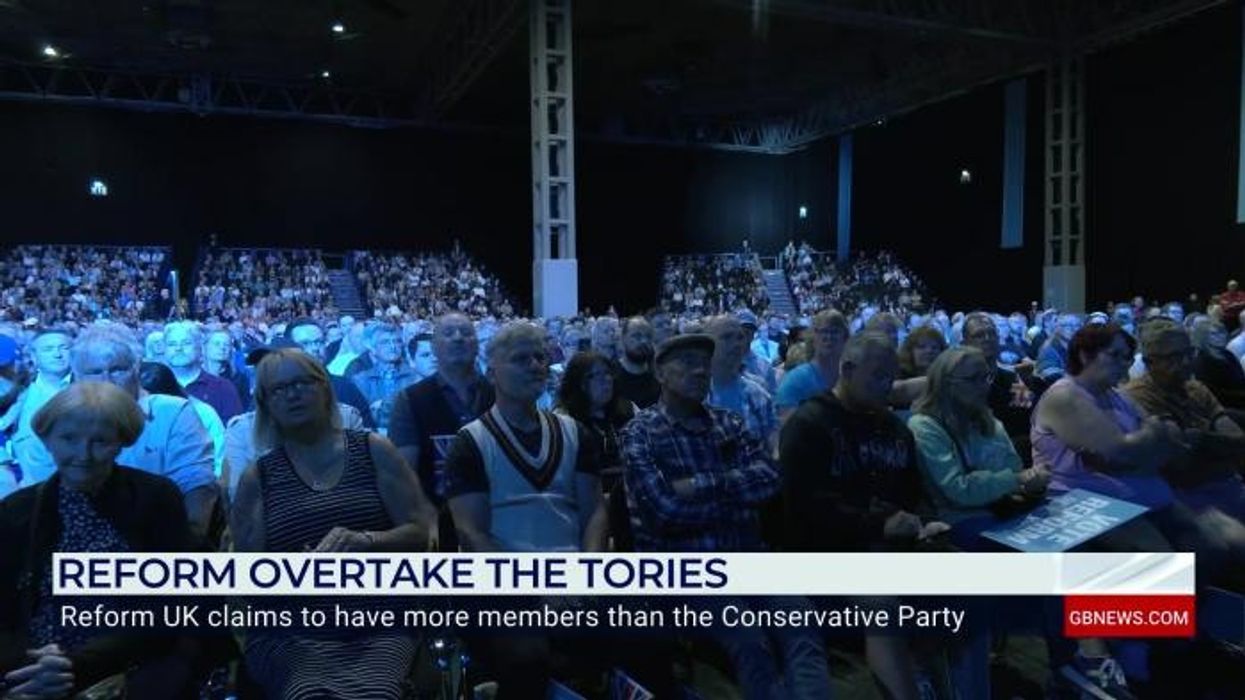REVEALED: Reform UK's political future could be decided in MONTHS as party faces its biggest election test

The elections in May mark the first real test for Reform. Can Nigel Farage's party pull it off? GB News investigates
Don't Miss
Most Read
Reform UK has much to boast about at the moment.
Nigel Farage's party is riding high in the polls, and its membership base has galloped past that of the Conservatives.
However, the real test for Reform will come in May when the seats on all 21 county councils in England will be up for grabs.
If Reform can consolidate its recent gains in by-elections and turn councils turquoise blue, it will break the stranglehold of the two main parties.
The party could potentially capture hundreds of council seats from the Conservatives, who are defending a high number of wards from their peak performance in 2021.
This is something that elections guru John Curtice has remarked upon. If Reform puts up a "decent slate of candidates" in the local elections in May next year, he previously told GB News, they could profit from the fact that the Conservatives are defending a "very high baseline".

Reform could scoop up as many as 1,000 councillors in May elections, polling suggests
|Britain Elects
Senior data journalist Ben Walker predicts as much. The founder of the UK's largest poll aggregator, Britain Elects, has crunched the numbers and found Reform dominating councils across northwest England, the Midlands, Lincolnshire and the Thames Estuary.
It projects scores of wards in Lincolnshire, Staffordshire, Durham, Norfolk and Essex - all up for grabs in 2025 - flipping to Reform.
All told, Reform could scoop up as many as 1,000 councillors, the data scientist reckons.
Momentum is key
Success in the 2025 local elections could serve as a springboard for Reform UK in subsequent national elections.
By establishing a presence in local councils, Reform can build a more robust party infrastructure, gain experience in governance, and potentially sway voters for the 2026 Welsh and Scottish Parliamentary elections, where the proportional representation systems might favour smaller parties like Reform.
Polling north of the border certainly bodes well for the party.
Recent polling puts the party over 10 per cent in Scotland, suggesting they could secure up to 12 MSPs in the 2026 Scottish Parliament elections under the proportional representation system.
This could effectively constitute a "blocking minority" in Holyrood, Curtice tells GB News.
This is where no clear coalition can form, either among pro-independence parties like the SNP and Greens or among unionist parties such as Labour, the Conservatives, and the Liberal Democrats.
A similar story is playing out in Wales, with Reform surging at Labour’s expense. A recent poll commissioned by Reform positions them as the third most popular party in Wales should an election be held tomorrow, potentially surpassing the Conservatives in certain areas, which could translate to multiple seats in the Senedd.
LATEST MEMBERSHIP DEVELOPMENTS

The most fundamental challenge for Reform to overcome is becoming palatable to the wider electorate
| REFORM UKHeadwinds
The challenges Reform will face along the way are formidable.
Take May's elections. Labour's proposed reforms could stymie Reform's gains.
The party plans to merge smaller district councils into larger governing bodies in areas where opposition parties are gaining ground.
It is part of plans to introduce elected mayors across all regions, granting them increased powers over sectors such as transport and planning. This initiative involves merging smaller district councils into larger governing bodies, with a minimum population threshold of 500,000 for local authorities.
As part of this restructuring, local elections scheduled for May 2025 in areas where Reform is gaining ground may be postponed.
Labour insists that the restructuring isn't politically motivated, rather, it's designed to enhance devolution and streamline administrative structures.
However, it could slow down Reform's momentum this far out from the General Election - a point that Reform MP Lee Anderson has remarked upon.
He wrote on X: “When they can’t beat you at the ballot box they take the ballot box away.
“This is not some South American military regime.”
The other more fundamental challenge for Reform to overcome is becoming palatable to the wider electorate.
As Curtice - the elections guru - points out, it's what UKIP - Farage's former party - never managed to achieve.
"It remains to be seen whether Reform UK can embed itself in the social and organisational life of the country," he added.
Reform appears to be mindful of this. One insider recently told GB News that the party apparatchiks are rejecting 50 per cent of candidates ahead of May's elections in a bid to cleanse its image and professionalise the party.











